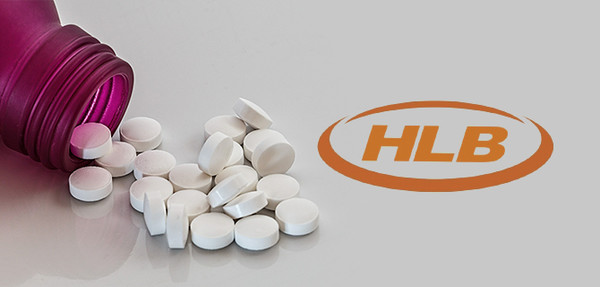HLB's targeted anticancer drug, rivoceranib, has proven excellent efficacy, with 85 percent of patients showing cancer disappearance and more than 30 percent reduction in adenocarcinoma treatment for local progressive esophageal squamous cell cancer (ESCC).

Following the recent successful clinical results for liver and adenocarcinoma cancer treatments, the company said it was considering expanding the drug’s indications.
According to HLB, medical professionals have largely conducted neoadjuvant chemotherapy for treating solid cancers, including colon and breast cancer, which provides chemotherapy first before surgery. Preoperative adenocarcinoma treatments can successfully reduce the size of cancer and, likewise, the surgical resection site.
Consequently, additional auxiliary treatments can be predicted depending on the patient's prognosis or response to anticancer drugs.
Amid a lack of clinical practice for a combination of preoperative chemotherapy and targeted anticancer drugs related to locally advanced esophageal cancer, HLB researchers published the phase 2 clinical trial results for intravenous administration of taxol and cisplatin after taking rivoceranib in BioMed Research International.
The subjects underwent two rounds of combination chemotherapy with subsequent resection a month later.
Clinical results showed complete remission in 17 of 39 esophageal cancer patients. It also showed an objective response rate (ORR) of 84.6 percent and a disease control rate (DCR) of 97.2 percent, proving that rivoceranib combination therapy can be the best alternative to pre-operative chemotherapy.
Nine patients demonstrated complete pathological remission (pCR) after surgery, and 15 showed a major pathological response (MPR) with manageable side effects. Overall, rivoceranib resulted in a high survival rate of 95 percent even after two years of treatment.
On June 15, the international cancer journal BMC Cancer also confirmed that the combination treatment of low-dose rivoceranib in patients with advanced liver cancer resulted in a high complete remission.
It showed a 66.7 percent ORR and 17 months of progression-free survival (mPFS), proving excellent efficacy of various cancers one after another, the company said based on the journal.

